Pain can be a persistent and debilitating force in our lives, hindering our ability to work, enjoy life, or even get a good night’s sleep. When you’re in pain, it’s natural to seek relief, and sometimes that relief comes in the form of medications. Hydrocodone 10-325mg is one such medication, known for its effectiveness in managing moderate to severe pain. However, it’s crucial to understand not only how this medication works but also the potential risks associated with it.
Hydrocodone 10-325mg: A Closer Look
Hydrocodone 10-325mg is a combination medication that brings together two essential components: hydrocodone and acetaminophen. These two active ingredients work in tandem to provide pain relief, but they function differently.
- Hydrocodone: As an opioid analgesic, hydrocodone acts on the body’s opioid receptors in the central nervous system. This action reduces the perception of pain and eases its intensity, making it an effective tool for pain management.
- Acetaminophen: Acetaminophen, also known as paracetamol, is a non-opioid pain reliever and fever reducer. Its role in this combination is to enhance the pain-relieving properties of hydrocodone, resulting in more effective pain relief.
Indications and Uses
Hydrocodone 10-325mg is primarily prescribed to manage moderate to severe pain. It is a versatile medication used in various medical scenarios, including:
- Post-Surgical Pain: After surgical procedures, patients may experience varying levels of pain. Hydrocodone can be a valuable tool in post-operative pain management.
- Injury-Related Pain: Accidents and injuries can lead to significant pain. Hydrocodone can provide relief when over-the-counter pain relievers are insufficient.
- Dental Pain: Dental procedures often cause discomfort. Hydrocodone can be prescribed to alleviate the pain associated with dental work.
- Chronic Pain Conditions: For individuals living with chronic pain conditions, hydrocodone can be part of a comprehensive pain management plan.
Dosage and Administration
The appropriate dosage of Hydrocodone 10-325mg is influenced by several factors, including the severity of the pain, the individual’s medical history, and their response to the medication. It is usually taken orally, with or without food. Patients are advised to follow their healthcare provider’s instructions meticulously for safe and effective use.
Side Effects and Precautions
While Hydrocodone 10-325mg can provide relief, it’s essential to be aware of potential side effects and take precautions. Common side effects of this medication may include:
- Drowsiness: Hydrocodone can induce drowsiness, affecting an individual’s alertness and coordination.
- Dizziness: Some individuals may experience dizziness while taking this medication.
- Nausea: Nausea is a common side effect, which can be mitigated by taking the medication with food.
- Constipation: Opioid medications often lead to constipation. Staying well-hydrated and increasing fiber intake can help manage this side effect.
More severe side effects, such as respiratory depression (slow or shallow breathing), can occur, particularly when the medication is misused, taken in high doses, or combined with other substances. This emphasizes the importance of adhering to the prescribed dosage and instructions from a healthcare provider.
Dependence, Withdrawal, and Tolerance
Hydrocodone is classified as an opioid, and opioids have the potential for physical and psychological dependence. Over time, individuals may develop a tolerance to the medication, meaning they require higher doses to achieve the same pain relief. Abruptly stopping the medication can lead to withdrawal symptoms, including anxiety, restlessness, sweating, and muscle aches. To minimize these risks, patients should adhere to their healthcare provider’s guidance regarding the duration of treatment and the tapering process when discontinuing the medication.
Drug Interactions
Hydrocodone 10-325mg can interact with various medications, leading to adverse effects or potential overdose. These interactions are often seen with other opioids, benzodiazepines, and certain antidepressants. To avoid such risks, it’s crucial to inform your healthcare provider about all medications and supplements you are taking.
Safety During Pregnancy and Breastfeeding
The use of hydrocodone during pregnancy should be approached with caution. This medication may affect the developing fetus, and healthcare providers must weigh the benefits of pain management against the potential risks. Additionally, hydrocodone can pass into breast milk, posing a risk to nursing infants. Pregnant and breastfeeding individuals should consult their healthcare providers for guidance on pain management options.
Overdose and Emergency Response
In cases of overdose, individuals may experience life-threatening symptoms such as slowed or stopped breathing. Overdose can result from misuse, accidental ingestion, or taking excessive amounts of the medication. Recognizing the signs of overdose, including severe drowsiness, confusion, and difficulty breathing, is essential. If overdose is suspected, immediate medical attention is imperative.
Legal Status and Regulations
Hydrocodone is categorized as a Schedule II controlled substance in the United States. This classification is due to its potential for abuse, dependence, and adverse effects. Consequently, strict regulations govern its prescription, dispensing, and use.
Alternatives and Non-Opioid Pain Management
Considering the well-documented risks associated with opioid medications, healthcare providers are increasingly exploring alternative pain management strategies. Non-opioid pain relievers, physical therapy, and other non-pharmacological treatments can be effective options for pain management while minimizing the potential for opioid-related issues.
How does Hydrocodone 10-325mg works?
Hydrocodone 10-325mg is a combination medication that contains two active ingredients: hydrocodone and acetaminophen (also known as paracetamol). Each of these components plays a distinct role in how the medication works:
- Hydrocodone (10mg): Hydrocodone is an opioid analgesic, which means it belongs to the class of medications known as opioids. Opioids work by binding to specific receptors in the central nervous system, primarily in the brain and spinal cord. These receptors are called opioid receptors. When hydrocodone binds to these receptors, it has several effects, including:
- Pain Relief: Hydrocodone reduces the perception of pain by altering how the brain processes pain signals. It essentially decreases the sensation of pain, making it more manageable.
- Cough Suppression: Hydrocodone is also used in some cough medications due to its ability to suppress the cough reflex, which can be helpful in treating certain types of cough.
- Euphoria and Relaxation: Opioids like hydrocodone can produce a feeling of euphoria and relaxation, which can contribute to their potential for misuse and dependence.
- Drowsiness and Sedation: Hydrocodone can cause drowsiness and sedation, making it useful for managing pain-related sleep disturbances.
- Acetaminophen (325mg): Acetaminophen, also known as paracetamol, is not an opioid. It is classified as a non-opioid analgesic and antipyretic, which means it primarily works by reducing pain and fever. Acetaminophen’s mechanism of action is not fully understood, but it is thought to involve the inhibition of specific enzymes in the brain that play a role in pain and fever regulation.
The combination of hydrocodone and acetaminophen in Hydrocodone 10-325mg serves to enhance the overall pain-relieving properties of the medication. While hydrocodone provides pain relief through its actions on opioid receptors, acetaminophen complements these effects and increases the overall effectiveness of pain management. This combination approach can often provide more effective pain relief than either medication alone.
Who should avoid taking Hydrocodone tablet?
Hydrocodone 10-325mg is a powerful medication used for pain management, but it is not suitable for everyone. Several groups of individuals should avoid taking Hydrocodone tablet, or use it with extreme caution, due to the potential for adverse effects and risks. These groups include:
- Allergies or Hypersensitivity: Individuals who have a known allergy to hydrocodone, acetaminophen, or any other ingredients in Hydrocodone 10-325mg should avoid taking this medication. Allergic reactions can be severe and life-threatening.
- Respiratory Conditions: People with respiratory conditions like chronic obstructive pulmonary disease (COPD), severe asthma, or any condition that affects breathing should avoid Hydrocodone 10-325mg. Opioids, like hydrocodone, can depress respiratory function, which can be dangerous for individuals with preexisting respiratory issues.
- History of Substance Abuse: Those with a history of substance abuse, particularly opioids or other controlled substances, should be cautious when using Hydrocodone 10-325mg. They are at a higher risk of misuse, dependence, and addiction.
- Alcohol Use: Individuals who consume alcohol regularly or excessively should avoid or minimize alcohol intake while taking Hydrocodone 10-325mg. Combining alcohol with opioids can increase the risk of dangerous side effects and overdose, particularly on the respiratory system.
- Liver Problems: People with liver disease or liver impairment should use Hydrocodone 10-325mg with caution, as acetaminophen, one of the components of the medication, is processed by the liver. High doses of acetaminophen can be harmful to the liver.
- Kidney Problems: Individuals with severe kidney disease should be cautious when using Hydrocodone 10-325mg, as it may affect how acetaminophen is eliminated from the body.
- Gastrointestinal Disorders: Those with certain gastrointestinal conditions, such as bowel obstruction or inflammatory bowel disease, may be at increased risk of complications when using opioids like Hydrocodone 10-325mg.
- Pregnancy and Breastfeeding: The safety of Hydrocodone 10-325mg during pregnancy is a subject of concern, and its use should be discussed with a healthcare provider. Additionally, it can pass into breast milk, posing a risk to nursing infants, so it should be used with caution while breastfeeding.
- Seniors and the Elderly: Older adults may be more sensitive to the side effects of opioids and are often more likely to have age-related health conditions that could increase their susceptibility to the adverse effects of Hydrocodone 10-325mg. A lower dose and close monitoring may be necessary for this population.
- Psychological Health Conditions: Individuals with certain mental health conditions, particularly those involving depression, anxiety, or psychosis, should be cautious when using opioids like Hydrocodone 10-325mg, as it may exacerbate their symptoms.
Factors affecting intake of Hydrocodone tablets
The intake of Hydrocodone 10-325mg tablets, like any medication, can be influenced by various factors that impact its effectiveness, safety, and overall experience. Here are some key factors that can affect the intake of Hydrocodone 10-325mg tablets:
- Prescription and Dosage: The most crucial factor is following your healthcare provider’s prescription and dosage instructions. Taking more or less Hydrocodone 10-325mg than prescribed can lead to adverse effects or reduced effectiveness.
- Medical Condition: It is typically prescribed for the management of moderate to severe pain. It’s important to use it as part of a broader treatment plan for specific medical conditions that warrant its use. The type and severity of the pain can influence the dosage and duration of use.
- Individual Health and Medical History: Your overall health and medical history play a significant role in determining whether Hydrocodone 10-325mg is a suitable treatment for you. Certain medical conditions or allergies may contraindicate its use.
- Age and Weight: Dosage recommendations may vary based on age and weight. What is appropriate for an adult may not be suitable for a child, and dosages may need to be adjusted accordingly.
- Response to Medication: Individuals may respond differently to Hydrocodone 10-325mg. Some people may experience more significant effects or side effects, so your healthcare provider may need to adjust your dosage accordingly.
- Timing of Doses: It is usually taken at regular intervals to maintain a consistent level of pain relief. The timing can impact how well the medication works and how long the effects last.
- Food and Diet: It can be taken with or without food, but the presence of food in the stomach can affect the rate at which the medication is absorbed. Your healthcare provider will advise you on the best way to take it.
- Drug Interactions: Certain medications and substances, including other prescription drugs, over-the-counter medications, and dietary supplements, can interact with Hydrocodone 10-325mg. It’s crucial to inform your healthcare provider about all the medications and supplements you are taking to avoid potential interactions.
- Alcohol and Substances: Avoid alcohol while taking Hydrocodone 10-325mg, as combining alcohol with opioids can lead to dangerous side effects and increase the risk of overdose.
- Liver and Kidney Function: Individuals with impaired liver or kidney function may require dosage adjustments, as both hydrocodone and acetaminophen are metabolized in the liver and excreted by the kidneys.
- Tolerance and Dependence: Over time, some individuals may develop a tolerance to Hydrocodone 10-325mg, necessitating higher doses to achieve the same pain relief. This can increase the risk of dependence or addiction, making it crucial to use the medication as prescribed and under the supervision of a healthcare provider.
- Psychological Factors: Psychological factors such as pain perception, anxiety, or coping strategies can influence how individuals take and respond to Hydrocodone. Open communication with healthcare providers can help address psychological aspects of pain management.
Points to emphasize regarding Hydrocodone tablet
When discussing or considering Hydrocodone tablets, there are several key points to emphasize:
- Prescription Medication: Hydrocodone is a prescription medication. It should only be taken under the guidance and supervision of a qualified doctor. Never use someone else’s prescription or share your medication with others.
- Pain Management: It is typically prescribed for the management of moderate to severe pain, such as that resulting from surgeries, injuries, dental procedures, or chronic pain conditions. Its use should be limited to situations where non-opioid alternatives have been considered and found inadequate.
- Combination Medication: It is often combined with acetaminophen (paracetamol) in various strengths. The combination enhances pain relief, but it also introduces the potential for acetaminophen-related side effects or overdose, especially when misused.
- Dosage and Timing: Always follow your healthcare provider’s prescribed dosage and dosing schedule. Do not take more than the recommended amount or use it more frequently than directed.
- Tolerance and Dependence: Prolonged use of Hydrocodone can lead to tolerance, which means your body may require higher doses for the same pain relief. It also carries the risk of dependence and addiction. Patients should adhere to their healthcare provider’s treatment plan and should not increase their dosage without consultation.
- Potential Side Effects: Hydrocodone can cause side effects, including drowsiness, dizziness, nausea, constipation, and respiratory depression. Be aware of these potential side effects and contact your healthcare provider if they become severe or persistent.
- Responsible Use: Responsible use is crucial. Avoid alcohol while taking Hydrocodone, as it can intensify side effects and increase the risk of overdose. Ensure safe storage to prevent accidental ingestion by children or others.
- Interaction with Other Medications: Hydrocodone can interact with other drugs, including other opioids, benzodiazepines, and certain antidepressants. Inform your healthcare provider of all medications and supplements you are taking to avoid potentially harmful interactions.
- Pregnancy and Breastfeeding: If you are pregnant or breastfeeding, discuss the risks and benefits of using Hydrocodone with your healthcare provider. It can affect both the developing fetus and nursing infants.
- Liver and Kidney Health: If you have liver or kidney problems, your healthcare provider may need to adjust your Hydrocodone dosage. The medication contains acetaminophen, which is metabolized by the liver and excreted by the kidneys.
Correct way to store Hydrocodone tablet
Proper storage of Hydrocodone tablets is essential to maintain their effectiveness and to prevent unauthorized access, particularly in households with children or individuals at risk of misuse. Here are guidelines for the correct way to store Hydrocodone tablets:
- Keep It Secure: Store Hydrocodone tablets in a secure location that is not easily accessible to others, especially children and adolescents. Use a locked medicine cabinet, lockbox, or a high shelf out of their reach.
- Original Packaging: Keep the medication in its original prescription bottle or packaging. This helps in identifying the medication and its usage instructions. It’s also important in case of emergency medical situations.
- Out of Sight: Avoid leaving the medication in open view, where it may be visible to visitors, friends, or family members who shouldn’t have access to it.
- Dry and Cool: Store Hydrocodone tablets in a cool, dry place. Avoid exposure to excessive heat, moisture, and direct sunlight, as these factors can affect the stability of the medication.
- Keep Away from Moisture: Bathrooms are generally not recommended for medication storage due to the high humidity and moisture. Choose a different, drier location.
- Child-Resistant Containers: Ensure that the container is child-resistant and that you close it tightly after every use.
- Away from Food and Beverages: Do not store Hydrocodone tablets in the same area as food, beverages, or other household products. This helps prevent accidental ingestion.
- Inventory Management: Keep track of your medication supply. This will help you notice if any tablets are missing or if there is a risk of running out before your next prescription refill.
- Dispose of Unused Medication Properly: If you have any leftover Hydrocodone tablets, dispose of them safely. Many communities offer medication take-back programs or you can inquire at your local pharmacy about proper disposal methods. Do not flush them down the toilet or throw them in the trash, as this can harm the environment and pose a risk if they are retrieved and misused.
- Secure Other Medications: If you have other prescription medications, keep them securely stored as well. This reduces the risk of medication mix-ups.
- Keep It Labeled: If you need to transfer Hydrocodone tablets to a different container (e.g., a travel pill organizer), make sure it’s clearly labeled with the medication name, dosage, and instructions.
- Educate Your Household: Make sure your family members are aware of the importance of proper medication storage and the risks associated with misuse. Open communication can prevent unintentional incidents.
FAQ on Hydrocodone
What is Hydrocodone?
Hydrocodone is a prescription medication used to manage moderate to severe pain. It is classified as an opioid analgesic and is often combined with other substances, such as acetaminophen, to enhance its pain-relieving effects.
How does Hydrocodone work?
Hydrocodone binds to opioid receptors in the central nervous system, altering pain perception and providing pain relief. It is often combined with acetaminophen to enhance its effectiveness.
What conditions is Hydrocodone prescribed for?
Hydrocodone is typically prescribed for pain management, including post-surgical pain, injury-related pain, dental pain, and chronic pain conditions when other treatments are not effective.
What is the difference between Hydrocodone and other opioids?
Hydrocodone is an opioid, like morphine or oxycodone. The key difference lies in the specific formulation and combination with other ingredients, such as acetaminophen, which can affect its pain-relieving properties.
Is Hydrocodone safe to use?
Hydrocodone can be safe when used as prescribed by a healthcare provider. However, it is a controlled substance with the potential for dependence, misuse, and adverse effects, so responsible use is crucial.
What are the potential side effects of Hydrocodone?
Common side effects include drowsiness, dizziness, nausea, constipation, and respiratory depression. More severe side effects can occur with misuse or high doses.
Can Hydrocodone be addictive?
Yes, Hydrocodone is an opioid, and prolonged use or misuse can lead to physical and psychological dependence. Patients should use it strictly as prescribed by their healthcare provider.
Can I drink alcohol while taking Hydrocodone?
No, it is not advisable to consume alcohol while taking Hydrocodone, as it can intensify side effects and increase the risk of overdose.
How should Hydrocodone be stored?
Hydrocodone should be stored in a secure, cool, dry place, out of the reach of children and individuals at risk of misuse. It should be kept in its original child-resistant container.
What should I do if I miss a dose of Hydrocodone?
If you miss a dose, take it as soon as you remember, unless it is close to the time for your next dose. Do not double the dose to make up for a missed one.



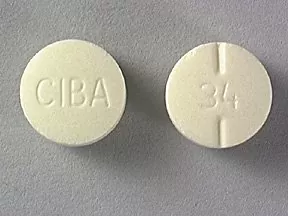
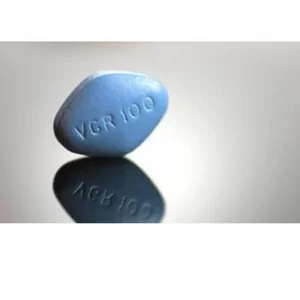
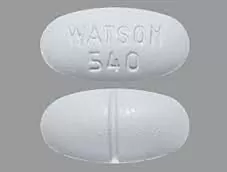


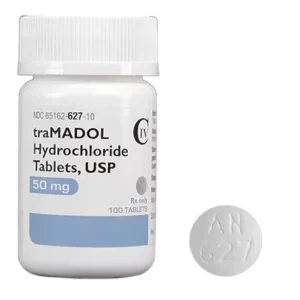
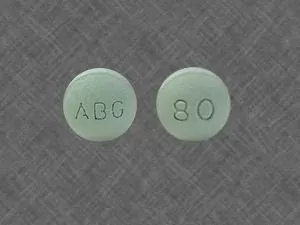
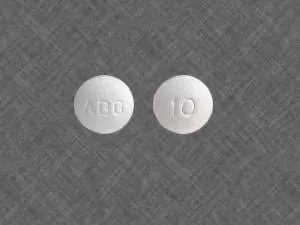
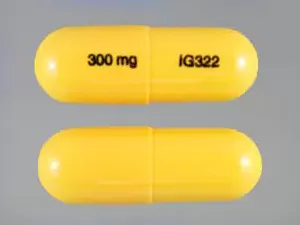
Allen Wood –
Very fast and efficient service a lovely lady helped me with my order as have never used it before I will definitely be using you again
Justing Ponting –
Great service – item was delivered extremely quickly and securely, no problems.
Jack Theodore –
The website was user-friendly, and navigation was easy. Placing an order was straightforward, and I found all the information I needed and site FAQ solve my problem. Thanx